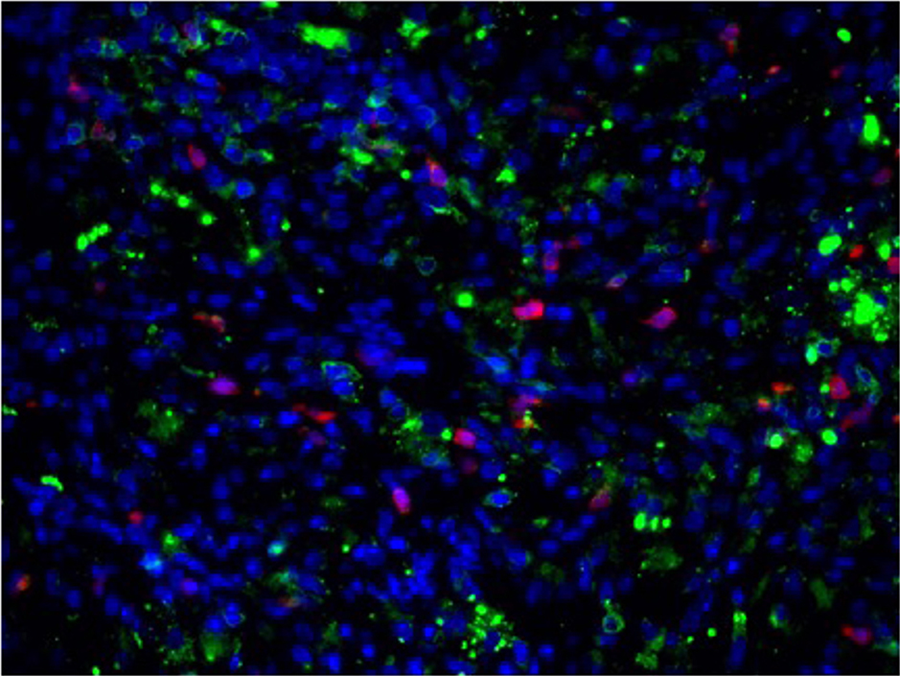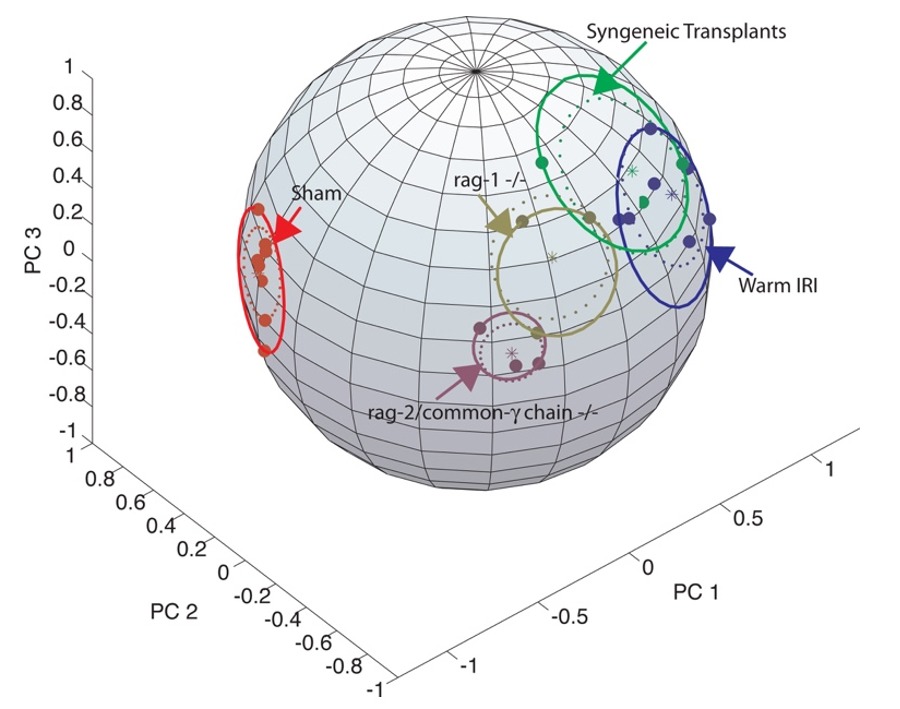The John Iacomini Lab
T Cell Subsets Involved in Transplant Rejection
Organ transplantation is a common life-saving modality but problems that affect long-term outcomes remain some of the most challenging and complex areas of medicine. Our laboratory is studying how pre-existing health conditions in the transplant population, such as hyperlipidemia, affect transplant rejection and tolerance.
Figure 1. Hyperlipidemia alters anti-donor T cell responses. Shown are CD4 T cells (green) in a tissue section prepared from a rejecting mouse allogenic heart transplant. In hyperlipidemic recipients, a significant proportion of the infiltrate is made up of Th17 cells.
Regulation of tissue injury and immunity by microRNAs
The laboratory has a major interest in examining how microRNAs regulate tissue injury responses induced by injury or drug exposure. We use state of the art approaches to study microRNA targeting of mRNAs within the RNA-induced silencing complex (RISC) and use this information to develop microRNA-mRNA interaction maps. These interaction maps are used to refine gene pathways under regulation by microRNAs and study the physiological consequence of this regulation in injury and repair. We have begun to use a similar approach to the role of microRNAs in the regulation of T cell immunity and tolerance
Figure 2. Alterations in microRNA expression can define different types of renal injury. Shown is the principle component analysis of microRNA expression data. The data are the first three principle components of time course data from different types of mice that underwent acute kidney injury and sham controls, compared to data from kidneys that were transplanted into syngeneic recipients. The data is represented as vectors emanating from the center of a sphere. Solid circles represent the smallest possible circle enclosing each group. Black lines represent standard deviation.


